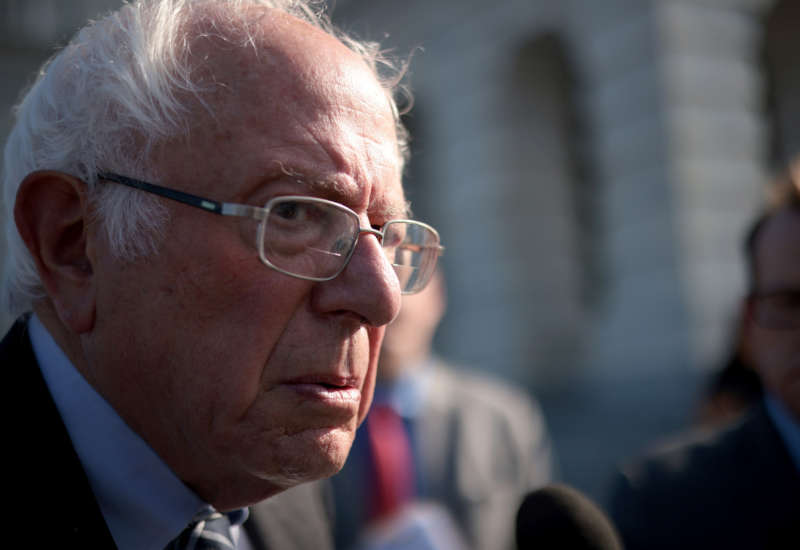Ahead of a crucial vote to amend the filibuster to support voting rights, Sen. Bernie Sanders (I-Vermont) has said that he would be open to supporting candidates levying a primary challenge to conservative Democrats Senators Joe Manchin (West Virginia) and Kyrsten Sinema (Arizona).
Sanders told reporters on Tuesday that he would consider backing primary challenges to the two filibuster holdouts when they’re up for reelection. The senators, who are basking in the praise and political contributions from conservative groups, stand in the way of nearly every Democratic priority currently before Congress.
The Senate’s protracted battle on the filibuster is coming to a head this week. Schumer announced on Tuesday that he will bring a filibuster reform vote to the chamber after Republicans inevitably vote to shoot down the Freedom to Vote: John R. Lewis Act, which could take place as soon as Wednesday or Thursday.
Though the two lawmakers aren’t up for reelection until 2024, both senators’ approval ratings have been falling fast as they stand in the way of Democratic progress – and an October poll found that Sinema would lose to progressive challengers if the election were held immediately.
Sanders, who has previously expressed frustration with the two senators, condemned their opposition to filibuster reform in a Twitter video on Tuesday.
“Right now, every Republican will be voting against us, and that’s pretty pathetic,” he said. “But what’s equally pathetic, as of now, two Democrats will be voting against us as well. I would hope very much that those two Democrats, Senator Sinema and Senator Manchin, will rethink their position and understand that the foundations of American democracy are at stake.”
According to Senate Majority Leader Chuck Schumer (D-New York), the two lawmakers are the only Democrats in the chamber who still staunchly oppose any changes to the filibuster, essentially supporting minority rule. Some other legislators have said that they’re torn on the issue, but that they’re open to filibuster reform, which Sinema and Manchin are not.
Schumer is proposing an implementation of a talking filibuster for the voting rights bill. This means that the bill will be able to pass with a simple majority vote after any opponents delay the vote by speaking on the Senate floor, if they so choose. Currently, bills must overcome a 60-vote threshold in order to pass.
The Freedom to Vote: John R. Lewis Act, which is a combination of two voting rights bills that have both been passed by the House, would greatly increase financial transparency in campaign donations and restore provisions of the Voting Rights Act meant to protect marginalized voters.
Voting rights advocates and progressives have welcomed Schumer’s plan, saying that it’s necessary to put senators’ views on the filibuster issue – which serves as somewhat of a proxy vote for voting rights – on the record. Sinema and Manchin have both already said that they will vote against the reform.


